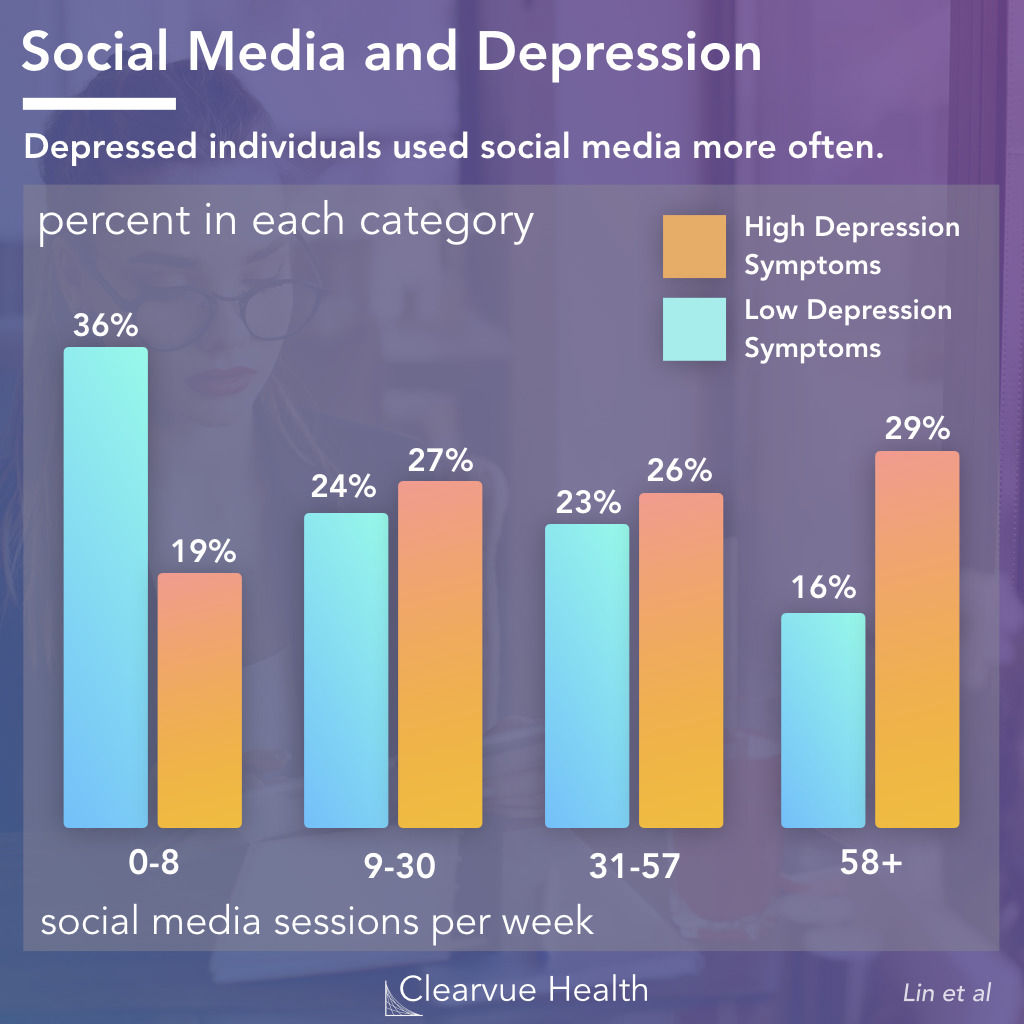What can I say about social media that hasn't already been said? I'm not a heavy user myself, but it is clear that there are niche services and communities that form in each. Social media provides a level of interconnectivity that allows groups and individuals to interact regardless of geography and culture. That said, many (such as Facebook) excel at creating ideological echo chambers. On one hand this permits exactly the kind of validation that a lot of people look for in their daily interpersonal communication. On the other, it insulates individuals and groups from constructive feedback on their ideas and perspectives. From the perspective of immediate individual gratification there are few good substitutes, but in terms of long term mental health(as well as ideological radicalization) there are numerous indications of issues.
One oft cited study regarding mental health and social media was conducted
by Facebook themselves regarding their Instagram platform. The study found that
teenage girls were more likely to view themselves negatively after viewing Instagram
content. Specifically increasing suicidal thoughts and eating disorders. This
is completely unsurprising, and ultimately (I feel anyway) reflects a longer
history of toxic marketing culture. That doesn't make it any less of an
issue, just a new (and maybe more universal) iteration of an old problem.
Also unsurprisingly, Facebook has gone to great lengths to distance itself from
its own study's findings.While Instagram isn't technically the same platform as Facebook, I think the assocation is close enough to justify mention.

Image property of Clairview Health https://www.clearvuehealth.com/images/social-media-depression/
Facebook (and social media in general) is certainly not all bad. It is an
excellent way to begin and maintain relationships that don't require a lot of
maintenance. It provides a medium to connect with people or communities that
share ideas. The tribalist tendencies can be offset by balanced offline
interpersonal communication. As the sole means of communication with the
outside world though? You're likely to come out hating yourself, humanity or
both.
Then there's the bigger question. Is Facebook accountable for any negative
mental effects of the content it hosts? For me, this comes down to an issue of
what is enforceable. The self-image of young teenagers has long been a target
effected by marketing, so there is a much larger social issue at work. It needs
to be addressed, but it also needs to be evaluated on a much deeper level. Age restrictions are also laughably difficult
to enforce without mass surveillance, which is definitely off the table.
However, in demonstrable cases where someone’s mental state has been adversely affected
by content hosted by social media they should be legally liable. They should also
be pushed to reformat their platform as necessary.
A couple of related articles for those interested:
https://www.npr.org/2021/10/05/1043194385/whistleblowers-testimony-facebook-instagram
No comments:
Post a Comment